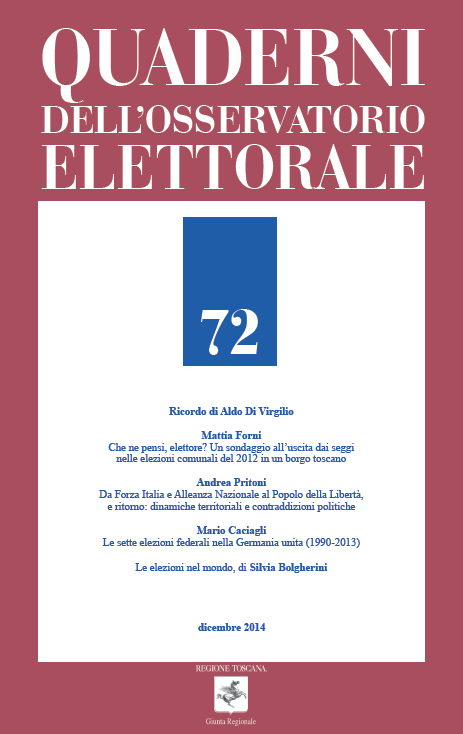Published 2014-12-30
Keywords
- germany,
- elections,
- electorate,
- political system
How to Cite
Abstract
Stability and predictability had been the norm in the German political system before the unification. The seven federal elections in the unified Germany from 1990 to 2013 did have significant consequences on the traditional continuity. After the last two governments headed by Helmut Kohl (1990-1998), the Social Democrat Gerhard Schröder became Chancellor in a Red-Green coalition (1998-2005) and the Christian Democrat Angela Merkel became Chancellor, fi rst in a Grand Coalition with the Social Democrats (2005-2009), than in a coalition with the Liberals (2009-2013), and after the 2013 elections in a Grand Coalition again. These frequent changes can be explained by the mobility of the electorate: the cumulative effect of the growth of the middle class and the general social mobility have eroded traditional loyalties, as the disaffection of the youth includes changing electoral choices or tendency to no-vote. Economic and social issues too did have effect on voting behavior: because their critical social situation the electors of the East had preferred fi rst Kohl’s CDU, than Schröder’s SPD and again the CDU under Merkel’s leadership; in the West millions of left electors disappointed by Schröder’s contentious reforms of the labor market leaved the SPD in the 2009 and 2013 elections; the performance of the economy in the last years after periods of crisis, collocating Germany at the top of the European Union, has stimulated the support to Merkel. Because a new party, the PDS than Linke, which has stable roots in the East, but can’t be partner of a government; because the exclusion from the Bundestag of the liberal FDP; and, finally, because the least reform of the electoral system toward more proportionality: all that injects uncertainty into a “fluid” party and political system.

